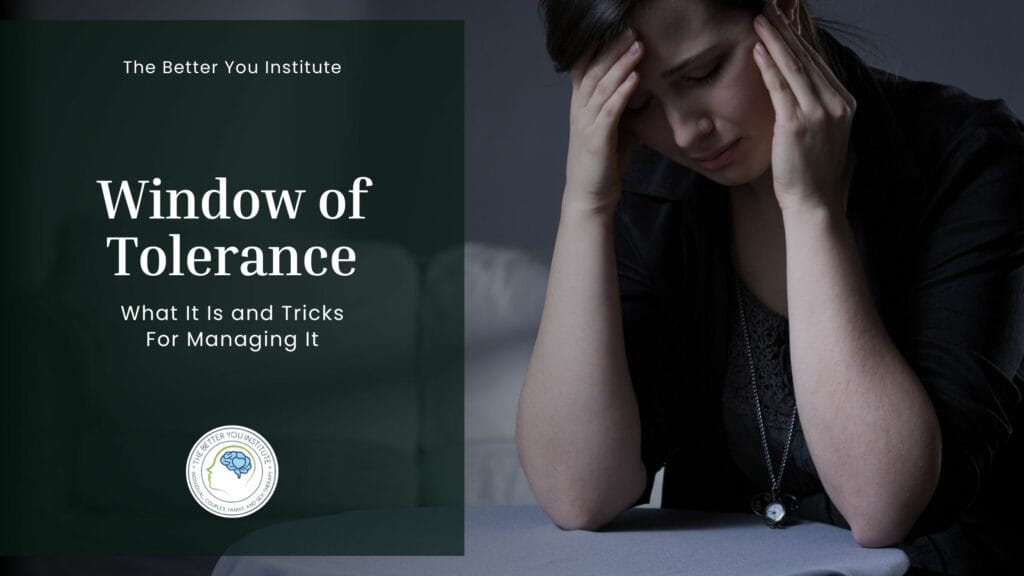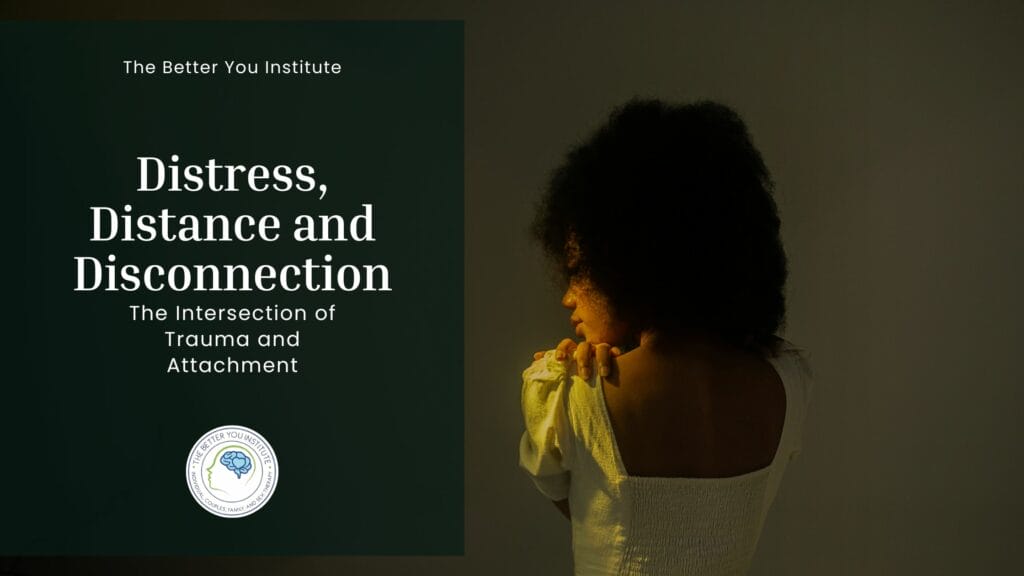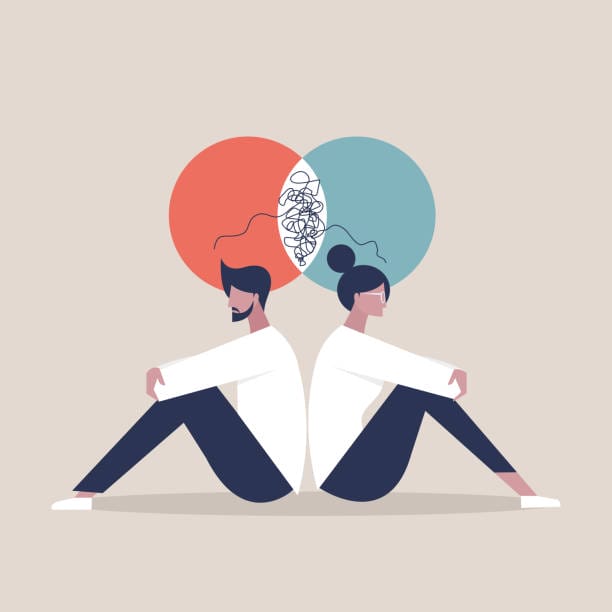Netflix‘s new show, Sex Education, is a light-hearted and humorous take on the complexities of sex education for teenagers. Our therapists share their thoughts on this topic to help viewers understand how important it is that we teach our children about healthy sexuality.
Sex education is not just about teaching kids what to do or where babies come from. It can also prevent sexual harassment and date rape by giving kids the right knowledge at the right time, so they know when someone crosses a line with them or touches them inappropriately.
The more we educate our children now, the safer they will be as adults later on in life because they will have the tools necessary to make good decisions for themselves without being manipulated into doing something they don’t want to do.
Table of Contents
What is Sex Education about?
As viewers patiently wait for season three of Sex Education to arrive on Netflix, it is the perfect time to discuss the show’s present seasons on Netflix and ponder the next season. Sex Education’s first season arrived on Netflix in January of 2019 and the second season aired in January of 2020. Due to COVID-19 related difficulties, the show has understandably taken longer than usual to air its third season, but it is rumored to air fairly soon.
The comedy-drama series allows viewers to understand sex and sexuality to show that everyone experiences sex differently. Some people have an easier time having sex, while other people may experience obstacles that are either psychological, physical, or a combination of both. Or some people might not want to have sex at all.
Otis, the main character in Sex Education, lacks experiential knowledge of sex, but he has a lot of knowledge about sex and sexuality because his mom is a sex therapist. Otis and one of his classmates, Maeve, start a business using Otis’s knowledge about sex and sexuality to help fellow teenagers at his high school. He can help many of his classmates but realizes that he might need sex therapy himself.
Warning: this article contains spoilers about the first two seasons of Sex Education.
How to use the information in this article
For health educators…
- The show points out the faults of regular sexual health curriculums. Instead, the show suggests:
- Incorporating lessons about sex that are not based solely on heterosexual couples
- Teach about the realities of sex and individual differences such as sexuality, readiness for sex, and issues with having sex.
For parents…
- Use your best judgment about whether your child should watch the show
- Due to the mature scenes (e.g., sexual assault, nudity, sexual intercourse) in the series, the series is recommended for audiences aged 18 and older. That being said, use your best judgment based on the information I provide to determine if your children should watch the show.
- Apply knowledge from the show to your teen/young adult
- Whether your child may be questioning their sexuality or sexually active, it is important to learn about and watch examples in the show of scenarios that happen in real life. The show can help you learn about real experiences that your teenager or young adult may experience.
- Use the show as a conversation starter with your child.
- Ask them what they think of the experiences the characters are having on the show.
- Ask them if they’ve ever had something similar.
- Be open to your child asking you personal questions about your sex and sexuality.
- Keep boundaries that allow you adult-level privacy while still allowing you to connect and be honest with your child.
- You can say you do not feel comfortable answering something and then explain why.
- Create safety for your child to come to you with their questions, concerns, and experiences without fear of punishment or judgment.
For teens/adolescents…
- Expose yourself to mature and graphic scenes presented in the show based on reality rather than unrealistic pornographic scenes.
- Hold awareness that some of the scenes may trigger you. Have a safe person you can talk to and process your thoughts and feelings with.
- If you learn something that you don’t completely understand from the show, speak with a parent, guardian, or doctor to understand better that some of the actors’ experiences may look and feel similar to your own but can also be different.
Should my child watch this show?
This is a decision that you (and the other parent, if applicable) should make on your own. The show is given the rating of TV Mature, which means that it is better suited for adults because of the graphic sex scenes, mature themes, and nudity. So while governing bodies do not suggest it as appropriate for children aged 17 and younger, it could be helpful for parents and their children to watch it to help children with their sexuality and sex.
Examples from the show
Below are some examples from the show, but not every single example the show presents has sex education. I picked these examples based on which ones stuck out to me the most. After reading this review, it is highly recommended to watch the series in full because the episodes bring up more important topics that are not listed here. Reading this blog allows you to learn about some aspects of the show, but it does not allow you to watch the relationships between the characters.
Genito-Pelvic Pain/Penetration Disorder (GPPPD)
Having sex is not always easy for some people because physical and psychological elements can interfere with the act. However, difficulties with sex are not commonly taught in high school health classes during the sex education portion of the class. Also, most shows and movies include unrealistically perfect sex scenes. A typical sex scene shows two people who enjoy sex a lot and have no difficulties or awkwardness. For these reasons, it can feel embarrassing or shameful when one cannot have sex, even if they want to have sex.
One of the characters in Sex Education, Lily, wants to have sex, but her vaginal canal is too tense in that it will not allow a phallic-like object (e.g., penis) in. Otis tells Lily that he thinks he knows what is going on with her body, vaginismus. Genito-Pelvic Pain/Penetration Disorder is the new umbrella term for conditions such as vaginismus and vulvodynia. Vaginismus is difficult because even if a person feels ready to have sex and wants to have sex, they may not be able to, like Lily. Symptoms of vaginismus include painful intercourse or the inability to have intercourse, pain during tampon insertion or gynecological examinations, and muscle spasms during attempted intercourse. This may cause anxiety about having sex, and it might be avoided. Fear of pain during sexual intercourse can also cause the vaginal muscles to tense up more, worsening the inability or painful attempt at intercourse.
Otis further explains that type A people, or people who are typically more anxious, are more likely to have vaginismus. In addition, vaginismus can happen if a person has experienced sexual assault, views sex negatively, or fears sex. Vaginismus can also prevent a person from putting a tampon in because the muscles tense up a lot. There are different ways to treat vaginismus, such as counseling, pelvic floor physical therapy, or muscle relaxation medication. Many clinicians recommend exploring one’s own body by attempting to insert their finger inside of the vagina. However, some can overcome it by simply using lubrication during sex and finding positions that allow them to relax.
How to talk about GPPPD with your partner/provider:
Explaining to your partner…
- Sit your partner down for a conversation when they have free time to fully focus on you.
- Explain to them your situation (Example: “I have a hard time having sex because my vaginal muscles tense up. I want to have sex, but my body responds in this way when I try to have sex.”)
- Explain to your partner common ways to overcome GPPPD
- Suggest using lubrication or specific positions that may make you more relaxed and comfortable
- Figure out what feels best for you and communicate to your partner your preferences
- Have an open dialogue with your partner surrounding creating safety around sexual activities
- Discuss foreplay and what you enjoy that helps you become aroused and relaxed
- Explore what each of you learned about sex and sexuality, what your views are now about sex, how you emotionally and physically feel when you know you and your partner will be having sex, and how these things may impact your body’s response to sexual activity
Understanding your partner with GPPPD
- Be open to your partner’s suggestions and tips that could help them relax.
- Help your partner feel comfortable while trying to have sex
- Do not take their situation personally
- Your partner probably feels embarrassed or shameful about their difficulties having sex, so it is important not to take their condition personally. It took them a lot of strength and courage to open up to you in the first place.
- During sex, it is important not to take their inability to have sex personally, too. They want to have sex, but something feels greater than them, creating a barrier that is not allowing them to have sex.
- Communicate during sexual activity to make your partner comfortable
- Ask what you can do to make your partner feel comfortable
- Ask if they are okay with how things are going
- Check in with what their body is telling you. Do they seem more relaxed, or do they seem tense?
Talking to your healthcare provider
- Ask about whether your healthcare provider can help. If not, schedule an appointment with a healthcare provider that can!
- Seek out a sex therapist that will help you explore the psychological aspects of things, guide you in advocating for yourself with medical healthcare providers, and give you some insights into what could be happening on a physical level
- The Better You Institute has trained sex therapists
- Seeking help from a pelvic floor physical therapist
- Seeking help from a gynecologist well versed in sexual functioning issues
- Seek out a sex therapist that will help you explore the psychological aspects of things, guide you in advocating for yourself with medical healthcare providers, and give you some insights into what could be happening on a physical level
- Discuss any possible causes you suspect may be causing your GPPPD
- If you do not know, that’s okay! You are seeking help from providers that are specially trained to be able to diagnose and point you in the right direction.
Spectrum of sexuality
Sexuality is a diverse spectrum that is defined by sexual feelings and thoughts towards other people. For example, asexuality is the lack of sexual feelings and thoughts towards other people. However, there are many more labels of sexual orientation, such as pansexual, homosexual, heterosexual, and demisexual. Labels can be helpful for some people, but they can be difficult and confusing for others. This may partially be because there are differences within specific labels. For example, one bisexual might prefer females even though they have an attraction towards males as well. However, another individual who goes by the label bisexual might be attracted to all people equally. So label yourself if it feels right, but feel free to decide not to label yourself. There is no incorrect way to understand and practice your sexuality.
Asexuality
In Sex Education, Florence feels extremely uncomfortable with the idea of sex because she has no interest in sex. Jean, Otis’s mom, tells Florence that she is not broken for not wanting to have sex. Florence is on the spectrum of asexuality. She explains that she feels like she’s at a feast with great food, but she is not hungry. Jean explains that asexuality is when someone is not attracted to sex or gender, but some asexual people still want to have romantic relationships. Florence does not want the sex part of a relationship, which is perfectly fine. However, some people who are asexual do not want relationships.
Bisexuality
The show illustrates authentic aspects of how people treat those in the LGBTQ+ community. Adam, for instance, is a character with internalized homophobia due to his father’s traditional values. No matter how hard he tries to suppress his sexuality, he cannot. His attraction and romantic feelings for Eric, an openly gay character, overpower his desire to conceal his feelings for a man. Adam deals with his sexuality in a very aggressive and unhealthy manner because of his father’s influence. Adam admits to Eric that he thinks he might be bisexual. Understanding that sexuality is not a choice and normalizing different sexualities is important to further accepting the LGBTQ+ community.
Homosexuality
Though confident and most comfortable in his sexuality, Eric does not have a completely accepting family when it comes to his sexuality and interest in wearing feminine clothing and makeup. In particular, his father has difficulty watching Eric be confident and dress in a flashy manner because his father is worried that Eric will get bullied. His parents do not necessarily understand him, but they accept him to a certain extent. Eric’s situation is not easy, but he can handle it well. He will not let the church or his father stop him from being himself.
Pansexuality
Another example of the spectrum of sexuality in the series is Ola’s confusion about her sexual orientation. She has some confusion about her orientation because she has sexual thoughts about Lily while she is dating Otis. Ola thinks that she may be pansexual, attracted to people regardless of their gender.
Pansexuality can be confusing in relation to bisexuality because some bisexual people will say that they like male, female, and nonbinary people. However, bisexuality originally was coined to mean ‘being attracted to males and females.’ This is part of the reason why individuals choose not to label themselves, as I mentioned earlier. The labels can be confusing. Some individuals will identify with both pansexuality and bisexuality because some view them as essentially the same.
Overall, the series does a great job of showing the diversity of sexual orientations and showing the rewards and difficulties of being in the LGBTQ+ community. In addition to Sex Education’s messaging, The Better You Institute believes that sexual behaviors and attractions do not imply sexual orientation, and sexual orientation does not imply sexual behaviors and attractions. Further, we think it is a good rule of thumb not to yuck someone else’s yum, but you can be open to yumming someone’s yuck! Normalizing the spectrum of sexuality in shows can help people feel more accepted and allow people to understand the complexities of sexuality.
Inadequate sex education
Schools typically teach about sex education from the white, heterosexual lens, which is important, but all other types of sex are neglected. Not only could teachers and education board leaders learn from this lack of important sex education, but parents could help their children learn about certain sex education that they are missing in school. An example of how sex education can be helpful is how it is depicted in the show: Anwar, one of the gay characters in the show, does not know much about gay sex because it is not taught. Otis teaches him how to douche before he is about to have sex. Thus, allowing for safer sex. See a ‘how to’ for anal douching here.
Unwanted sexual encounters
One of the characters, Aimee, experiences sexual assault on a bus by a man who masturbates next to her and ejaculates on her. She pushes away from her boyfriend and friends and has a hard time being intimate with her boyfriend. Aimee’s initial confusion and downplaying of the seriousness of the event were understandable. At first, she did not understand why her friend was making a big deal about the event but later became psychologically impacted by the event. With the help of her friend, she was able to recognize that she was sexually assaulted. By owning this event like sexual assault, Aimee can empower herself to process it and move forward.
In-clinic abortion
The show has been praised for its accurate portrayal of a safe abortion at a clinic that allows the character, Maeve, to understand all of her options. The show had a medical expert with them for the scene, and the people working on the set did not want to make the scene a big deal or sensationalize abortions. Maeve is given the choice of sedation for the procedure, and the clinician counsels Maeve on her choice. She was living by herself at 17 with an absent and unsupportive family, so she felt it was necessary. She could barely afford to take care of herself, much less a child. After running into anti-abortion protestors before her procedure, Maeve is comforted by the other women who either had an abortion before or had one in the past. Maeve is quickly in and out of the clinic because the procedure is speedy, 5-10 minutes. However, another option for abortion is the pill, which takes around 24 hours to work. After her procedure, Maeve resumes her life, and the abortion is not mentioned or shown to have much of an impact on her. According to most studies, women’s mental and physical health is not impacted by having an abortion. It is important to listen to all of your options regarding abortion before the procedure, and many clinics will do that with you.
Conclusion
Overall, the series does a good job of exploring topics regarding sex and sexuality. It will be interesting to see what season three adds to the discussion of sex education. Though I provided many examples from the series, I did not touch on all of the examples from the show. I recommend watching the show if you have not already because it is educational and enjoyable. The show will make you laugh, cry, and relate to some of the characters.
If you have any questions or want to explore a sexual topic of your own, give us a call at 267-495-4951 to make an appointment with a sex therapist in Philadephia, PA.
If talking to a sex therapist in person is not something you are comfortable with, we offer online therapy and counseliong for anyone located in the state of Pensalvania.







